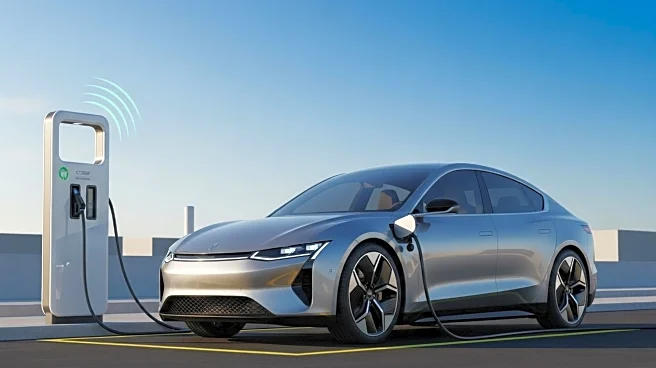What's Happening?
Electric vehicles (EVs) are being highlighted as a more liberating and cost-effective alternative to traditional gas-powered cars. Unlike gas vehicles, which require frequent refueling at stations, EVs can be charged at home, offering convenience and independence from oil companies. The ability to generate electricity through solar panels further enhances this freedom, allowing owners to reduce reliance on external energy sources.
Why It's Important?
The shift towards electric vehicles is significant for both environmental and economic reasons. EVs offer a sustainable transportation option, reducing carbon emissions and reliance on fossil fuels. Economically, they present long-term savings on fuel and maintenance costs, making them an attractive option for consumers. This transition could accelerate the adoption of renewable energy solutions and influence policy decisions aimed at promoting sustainable transportation.
Beyond the Headlines
The broader adoption of EVs could lead to infrastructural changes, such as increased investment in charging stations and renewable energy sources. It may also impact the oil industry, prompting shifts in energy policies and economic strategies. As more consumers embrace EVs, the automotive industry could see a transformation in manufacturing priorities and technological innovations.










